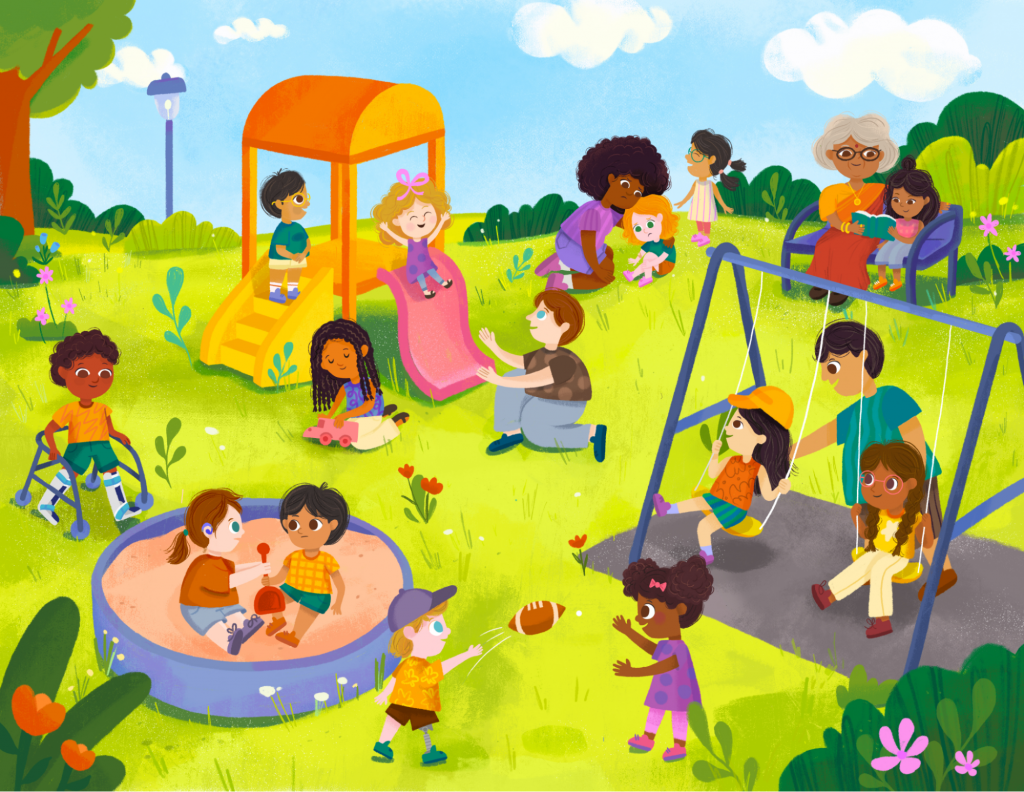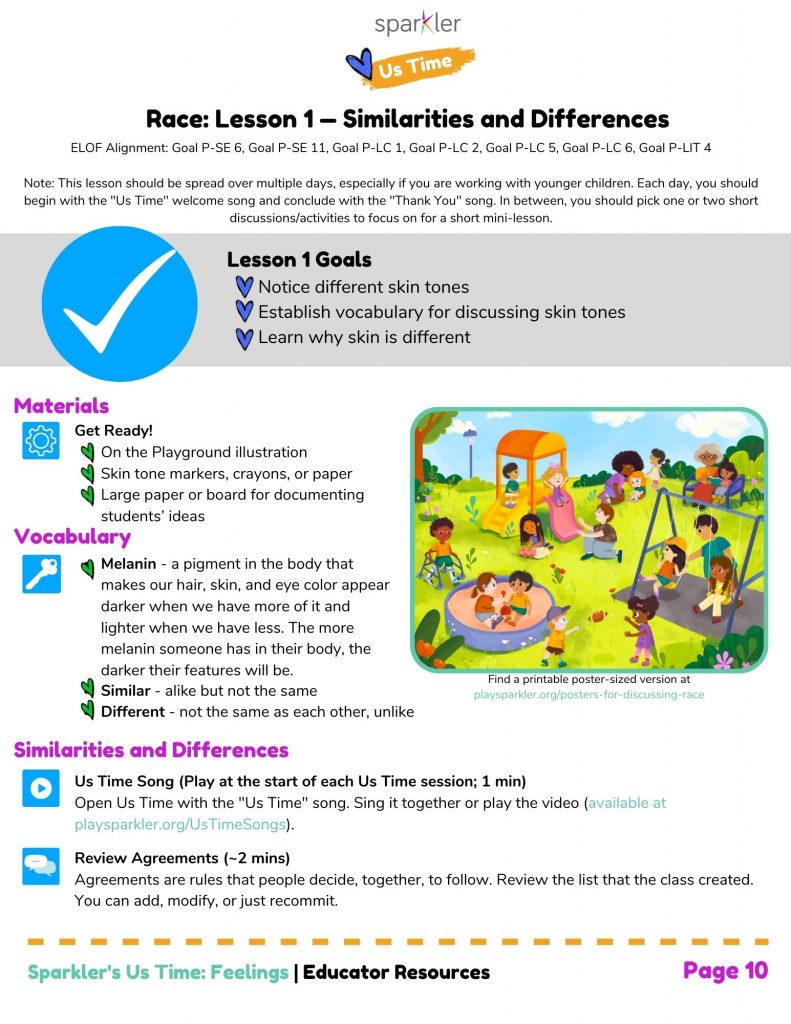Discussing Race
Lesson 1: Similarities and Differences
Lesson Goals
- Notice different skin tones
- Establish vocabulary for discussing skin tones
- Learn why skin is different
Lesson Description
Use the illustration “At the Playground” to spark conversations about skin tone, the many ways people are both the same as and different from one another, and “get to know” children who are different from us.
This lesson should be spread over multiple days, especially if you are working with younger children. Each day, you should begin with the “Us Time” welcome song and conclude with the “Thank You” song. In between, you should pick one or two short discussions/activities to focus on for a short mini-lesson.
Lesson Plan: What Are Feelings?
Play "Us Time" Song
Review Agreements
Discussion: On The Playground
Activity: Skin Color Matching
Activity: Tell a Story
Closing Discussion: Similarities and Differences
Thank You: Share the Us Time Closing Song
Standards
Early Learning Outcomes Framework: Goal P-SE 6, Goal P-SE 11, Goal P-LC 1, Goal P-LC 2, Goal P-LC 5, Goal P-LC 6, Goal P-LIT 4.
CT ELDS: SE.36.13, SE.48.12, SE.60.15, SE.36.7, SE.48.7, SE.60.9, SE.36.9, SE.48.9, SE.60.11, SS.48.1, SS.60.1, L.36.5, L.48.5, L.60.5, L.36.7, L.48.7, L.48.11, L.36.14, L.48.13, L.48.15
Vocabulary
Same – an identical type; exactly similar
Different – not the same as another or each other; unlike in nature, form, or quality
Melanin – a pigment in the body that makes our hair, skin, and eye color appear darker when we have more of it and lighter when we have less of it. The more melanin someone has in their body, the darker their features will be.
What You'll Need
Skin tone markers, crayons, or paper
Large paper or board for documenting students’ ideas
“Us Time” song
“Celebrate Our Difference” by Oh, Hush!, Grayson DeWolfe, and Mattrik from the Big Heart Beats Album.
“Thank You” goodbye song
Lesson Quick Links
- “Us Time” song
“Celebrate Our Difference” by Oh, Hush!, Grayson DeWolfe, and Mattrik from the Big Heart Beats Album.
- “Thank You” goodbye song
- Discussing Race with Young Children guide
Printable Version of Lesson
Family Engagement Materials
From this lesson, you can share:
- Letter to introduce this unit to families
- “Us Time” song
- Discussing Race with Young Children: A Step-By-Step Activity Guide
- “Celebrate Our Difference” by Oh, Hush!, Grayson DeWolfe, and Mattrik from the Big Heart Beats Album. There’s also an interview with the artists about similarities and differences.
- Community Colors interactive (also available in the Sparkler app for programs using Sparkler)
- “Thank You” goodbye song






